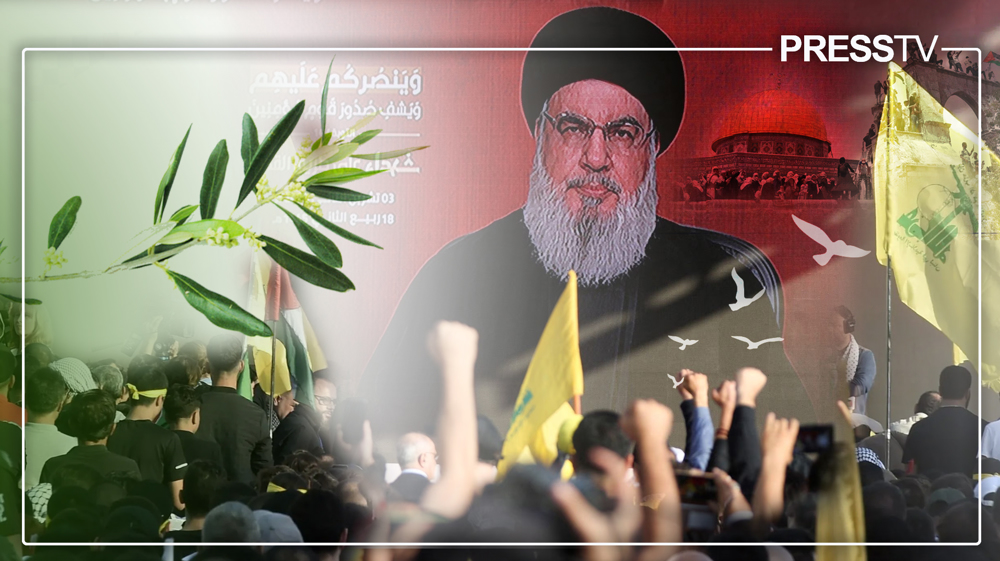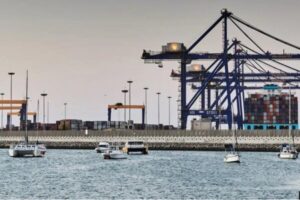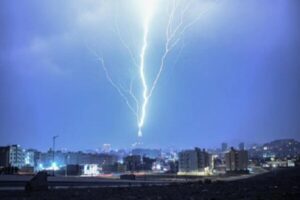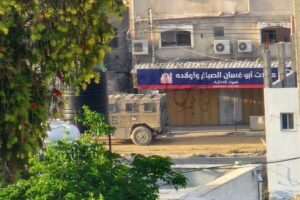By Shabbir Rizvi
Millions across the world tuned in on Friday to hear Hezbollah Secretary General Sayyed Hassan Nasrallah deliver a much-awaited speech after nearly a month of strategic silence amid the Operation “Al Aqsa Storm.”
The Hezbollah leader, in his characteristic style, touched on the events unfolding in the besieged Gaza Strip and vowed that all options are on the table if the Israeli regime and its backers in Washington insist on continuing their brazen aggression against the territory’s 2.2 million population.
The much-anticipated speech was broadcast live worldwide and was attended by thousands of people in the Lebanese capital Beirut, where supporters of the Palestinian cause had gathered much earlier.
Nasrallah’s speech, measured and calculated as always, has already caused anxiety in Western capitals as the Hezbollah resistance movement delivered devastating blows to Israeli forces on the northern border of occupied Palestine.
The charismatic Hezbollah leader began his speech with a reflection on the horrific loss of life due to the Israeli occupation’s genocidal campaign in Gaza that started on October 7 and has so far killed over 9,000 Palestinians, more than half of them women and children.
Expressing condolences to the bereaved families, Nasrallah quoted the holy Quran, saying “Those martyred in the cause of Allah are not dead—in fact, they are alive and happy with their Lord.”
After paying tribute to the martyred fighters of resistance, he encapsulated the events of the ‘Operation Al Aqsa Storm’ (also known as the Al-Aqsa Flood) thus far.
The Hezbollah leader affirmed that the ongoing operation against the occupying regime is “100% Palestinian” and was planned in total secrecy with no other regional resistance group aware of it.
Since the onset of the operation on October 7, Zionist officials have been accusing Iran and Hezbollah, in particular, of collaborating with the Palestinian resistance group Hamas in planning the operation.
This blame game has been designed to dilute the fact that the operation exposed the failure of Israeli intelligence and debunked the myth of the regime’s military invincibility.
“The international community keeps bringing up Iran and its military plans, but the October 7 attack was a 100% Palestinian operation, planned and executed by Palestinians for the Palestinian cause, it has no relation at all to any international or regional issues,” Nasrallah stated.
The fact of the matter, as succinctly laid out by the Hezbollah chief in his Friday speech, is that Hamas and the Palestinian resistance alone have humiliated the Israeli regime.
“Operation Al-Aqsa Flood further exposed the weakness and frailty of the Israeli entity”, Nasrallah said, invoking his iconic description of the Israeli regime as “weaker than a spider’s web.”
The Hezbollah leader called out the main architect of Palestine’s suffering: the United States.
In an interview with Press TV, Iranian MP Sayyid Mohammad Reza Mirtajodini discussed the points made by the Hezbollah leader during his speech, including the consideration of all options when it comes to confronting the Israeli regime. pic.twitter.com/D7qOBPrpS3
— Highlights (@highlightsnews1) November 3, 2023
“Washington is entirely responsible for the ongoing war in Gaza, while ‘Israel’ is merely a tool for its execution,” Nasrallah asserted, without mincing words.
Israel has been able to commit atrocity upon atrocity for decades against Palestinians due to the unflinching political backing of the US, as well as the three billion plus dollar yearly funding.
Nasrallah noted that on top of this amount, Israel requested another $10 billion from the United States after the regime was humiliated on October 7 – highlighting the occupation’s survival is tied directly to Washington’s willingness to keep it afloat financially – as well as politically.
Since the start of the indiscriminate bombing campaign on Gaza, the mainstream media and political arms of the US have been in full swing peddling Zionist narratives despite widespread public condemnation of the occupying regime within the United States.
Nasrallah also noted that the US position as a permanent member of the United Nations Security Council has also blocked the Israeli aggression from being stopped.
This framing is important – calling for a ‘ceasefire’ implies both sides put down their arms as if it is an even match. The Hezbollah leader noted that it is an asymmetrical aggression being carried out on Gaza and laid the blame on Washington’s insistence to back Israeli aggression.
Nasrallah also stressed that this aggression is a cowardly collective punishment inflicted on Gazans as the occupation regime has failed to win against Hamas and other resistance in face-to-face battles.
By connecting the US’s direct role in supporting the Israeli regime’s brutal massacres, Nasrallah gave a nod to Iraqi resistance factions – which have targeted US bases across occupied Iraq and Syria – deeming their efforts as legitimate and courageous acts of solidarity for the Palestinian cause.
He did the same with the efforts of the Yemeni resistance – which has openly and unequivocally declared its military support for Palestine, going as far as directly launching rockets and drones at Israeli targets.
The Hezbollah chief also called on other Arab states that have dragged their feet to take practical measures in punishing Israel, saying condemnations alone are not enough to support Palestine.
For the Israeli regime, these connections lay bare their humiliation – without the American backing, the illegitimate Zionist regime would be completely isolated and left to die.
Its ineptness has reached a level of humiliation that has forced the US to send aircraft carriers and military advisors to help control their dire situation. These are the markings of an unsustainable regime.
Nasrallah made it clear, outlining the immediate objectives: end of the aggression on the besieged Gaza Strip, and a decisive victory for Hamas over the occupation regime.
With this declaration, Nasrallah affirmed Hezbollah’s commitment to support the Palestinian resistance. He declared that the Lebanese movement’s official involvement in the war began immediately after the launch of the Al-Aqsa Storm – creating a strategic front in northern Palestine.
This front will play a key role as it draws significant military resources from the Zionist regime away from ground operations in Gaza and the West Bank to the northern border – an area where Israel has been defeated several times by Hezbollah.
For years, Zionist troops have avoided a direct confrontation with Hezbollah on Lebanon’s southern border. Now, they are being forced to engage – on Hezbollah’s own terms.
Since the beginning of the operation, Hezbollah has delivered tit-for-tat blows to Israeli forces. On top of using ATGMs and mortars to destroy Israeli tanks and sites, it has successfully claimed its share of Israeli soldiers killed in action, as well as destroying surveillance drones and radar devices.
On the eve of the speech, Hezbollah launched a coordinated missile attack on multiple occupation sites, the largest barrage of rockets against the occupation from the Lebanese resistance in over a decade.
Nasrallah’s insistence on putting Israeli forces in a chokehold on Lebanon’s southern border is not only an act of solidarity with Gaza’s resistance but it proves his point – Zionists direly need Americans.
“Your fleets do not scare us, nor have they ever, and we are all set for them,” he said, addressing the American political and military leadership.
Nasrallah made it emphatically clear that Hezbollah is prepared for all circumstances and scenarios, including that of regional war – if the US insists on provoking.
“Whoever wants to prevent a regional war must hasten to stop this aggression,” he declared.
The Hezbollah leader used this speech to demonstrate his “chess not checkers” strategy. Keenly aware of Washington’s role, he vowed decisive retaliation if Washington intervened further.
He also used this opportunity to double down on Israel’s dependence and fragility – they cannot take on Hamas alone, and need the US to provide cover – politically, militarily, and financially.
Nasrallah knows this battle requires persistence and patience – and the longevity of the resistance as well as its persistence holds the key. Time is not an ally of the occupation regime, as it is losing political support with each massacre it commits in the Gaza Strip and the occupied West Bank.
Hamas has affirmed it is ready for “the long battle.” Videos circulating on social media show encounter after encounter of Hamas ambushing Israeli ground forces – destroying tanks with hit-and-run maneuvers. The failure of the Israeli ground operation has even cost the regime many elite units.
Nasrallah compared these battles with Hezbollah’s battle against the Zionist regime in 2006 – which shattered the illusion of the regime’s invincibility.
Concluding on a high note, Nasrallah said Gaza “will be victorious” and Palestine “will come out triumphant.”
Hezbollah, in line with the speech, is going to play a pivotal role in ensuring the Zionist regime faces a decisive defeat in Gaza. Drawing Israel’s attention northward while addressing Washington directly is a strategic calculation – one where Israel will be forced to fight Hamas and concede defeat.
Nasrallah, in his inimitable fashion, once again definitively proved that Israel, despite all of its technological prowess and political backing from the US, is weaker than a spider’s web.
Shabbir Rizvi is a Chicago-based political analyst focusing on US internal security and foreign policy.
(The views expressed in this article do not necessarily reflect those of Press TV)




